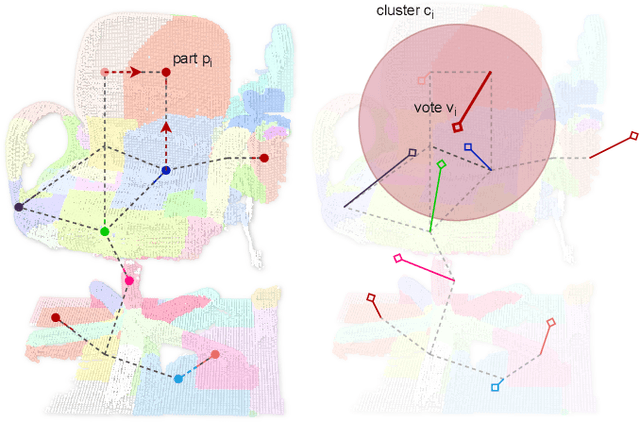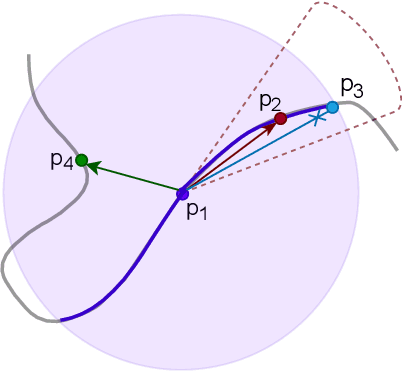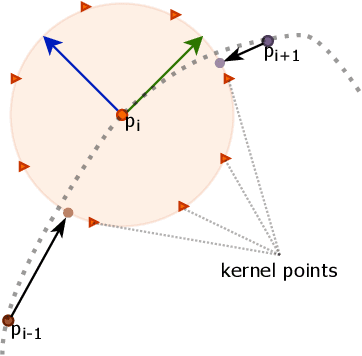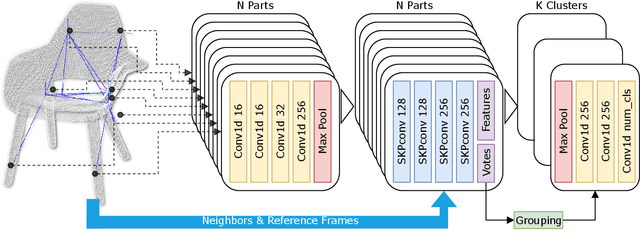Sim2Real 3D Object Classification using Spherical Kernel Point Convolution and a Deep Center Voting Scheme
Paper and Code
Mar 10, 2021



While object semantic understanding is essential for most service robotic tasks, 3D object classification is still an open problem. Learning from artificial 3D models alleviates the cost of annotation necessary to approach this problem, but most methods still struggle with the differences existing between artificial and real 3D data. We conjecture that the cause of those issue is the fact that many methods learn directly from point coordinates, instead of the shape, as the former is hard to center and to scale under variable occlusions reliably. We introduce spherical kernel point convolutions that directly exploit the object surface, represented as a graph, and a voting scheme to limit the impact of poor segmentation on the classification results. Our proposed approach improves upon state-of-the-art methods by up to 36% when transferring from artificial objects to real objects.
 Add to Chrome
Add to Chrome Add to Firefox
Add to Firefox Add to Edge
Add to Edge